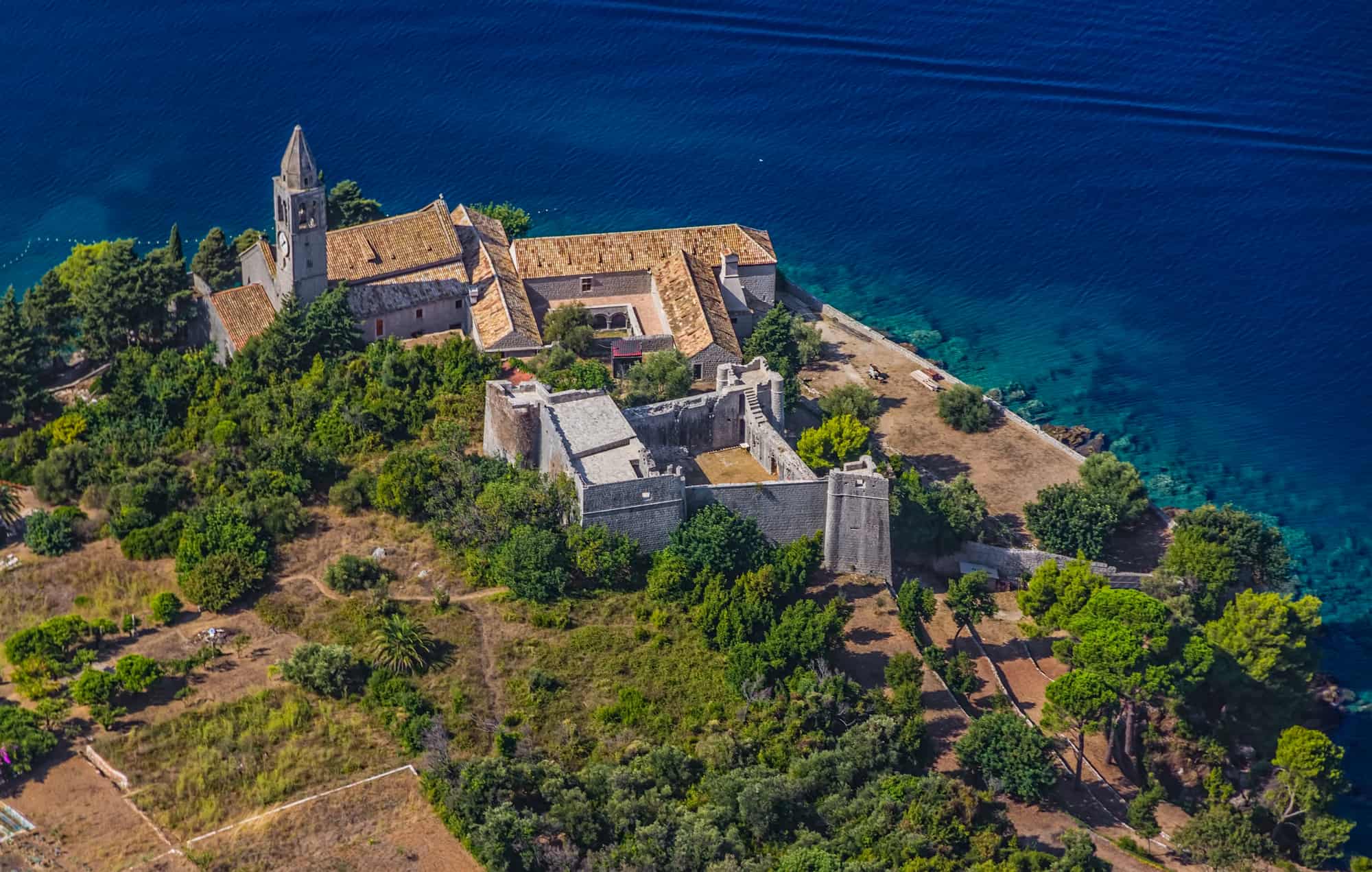Lopud is one of the islands in the Elaphiti Islands. You can easily reach the islands from Dubrovnik via one of the ferries.
The daily ferries stop in Kolocep along the way and continue on to Sipan), which take 55 minutes. Located just about 7 miles from Dubrovnik, you can do a day trip from the city to explore Lopud.
Let us explore more about Lopud.
When To Go
Spring and Autumn are the best times to visit the islands. If you want to go and visit during a quieter time, then June and September are good months to go.
Whereas, July and September are always full of families and tourists. This is because the weather is fine and even better than in July and August (milder temperatures) so the activities can include hiking and other outdoor activities.
Things To Do in Lopud
This relaxing island is perfect for those who want to get away from it all. Visit Lopud for a quiet time with your family or friends
You can rent bikes, walk through the lush green vegetation of the island or even spend time at the sea. Apart from that, there are a number of attractions you can visit on the island like:
- Visit the 15th-century Franciscan monastery.
- Explore the ruins of the Rector’s Palace and the ruins of a Fortress
- You can also hike to the 15th-century church of Our Lady of Sunj above Sunj Bay and beach. The church features the wooden Renaissance-baroque altar with sculptures
- There are also tours for kayaking and hiking

History of Lopud
The Greeks called the island Delaphodia while the Romans called it Lafota. From the 11th Century onwards, the island was part of the Ragusa, the Dubrovnik Republic.
Where to Stay
There are lots of apartments, AirBnB’s and hotels available in the village. Since the village is pretty small, you will have good views from most of the places you stay. We mean a sea view, of course.
Conclusion
In conclusion, Lopud can prove to be an excellent quiet getaway for those that need one.
